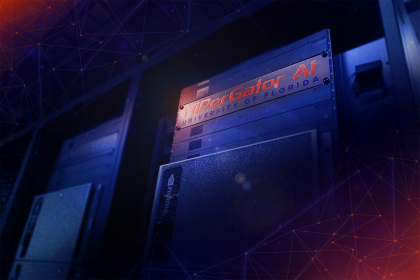UF Information Technology’s (UFIT) new research software engineering team are primed to help researchers carry out technically advanced tasks. Services offered include writing custom, expert-quality scientific software and helping faculty address the increased data management and research reproducibility requirements.
Initial funding for this new team is provided by President Sasse’s strategic funding initiative. The research software engineers (RSEs) can enable hero calculations–calculations that require all GPUs of HiPerGator, the University of Florida supercomputer–by developing high performance, scalable, and sustainable research software, improving research staff efficiency, and enabling technology adoption to enhance research outcomes.
Consulting and support from the RSEs include:
- Leading and supporting the development of domain specific research software utilizing best software engineering practices.
- Designing, architecting and implementing AI-driven solutions tailored to address complex scientific research problems across disciplines.
- Designing and developing digital twin technology, encompassing object and system design, process development and optimization, predictive modeling, ensuring integration with multiple systems.
- Optimizing workflow design for utilizing HiPerGator in running the software● Data management, processing, database setup and maintenance, and data access API development with internal and external data providers.
- Expert consultation and guidance on cutting-edge software tools, algorithms, and hardware resources.
UFIT’s Research Computing staff looks forward to supporting your research project. Let’s discuss your line of inquiry and identify how our staff can help your project. Contact AI Support Manager Ms. Ying Zhang (yingz@ufl.edu) to begin your RSE consult.






